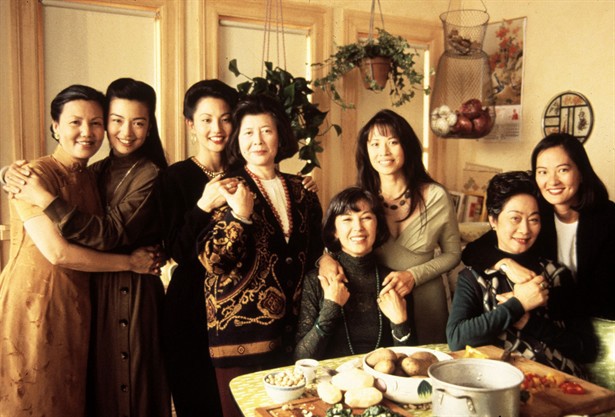Let’s Kill Til It’s Dead The Myth That Mom’s Salary Pays For Childcare

This rueful, poignant essay on Vox by Lisa Endlich Heffernan about a woman’s mixed feelings about having become a stay-at-home mom is well worth reading, but it perpetuates an idea that makes me almost luminescent with rage: that if a woman’s salary doesn’t [significantly] exceed the cost of childcare, she should stay home.
Many women quit their jobs because their after-tax income barely clears their babysitter’s. When they look at the economics of working and combine it with the knowledge that they are missing the crucial baby years that they can never get back, walking away from a job starts to look like a real option.
But I think both of these assumptions have within them great fallacies. The economic calculus of working may look bleak for a woman in the early or early-mid phase of her career when totting up the cost of child care. But unless she believes that her salary will be static, the calculation must include expected future earnings (which might be considerably greater) and the enormous potential cost to those future earnings of years out of the workforce.
Heffernan isn’t wrong here but she misses a crucial point: childcare doesn’t merely allow a mom to work, it allows both parents to work, or however many parents are involved. So everyone’s incomes go towards that cost. Add up the total income and then subtract the amount of childcare before you ask yourself, “Is it worth it for one of us to stop working?” Why is that so hard?
If everyone benefits from childcare, everyone pays for childcare. Period.
When we assume women alone should shoulder the price of childcare — which is, by the way, often extravagant — we are saying, as a culture, that women are still and primarily responsible for the home front. That that’s their real job and whatever outside work they do is secondary, disposable, temporary. This isn’t 1944! We’re not salvaging scrap-metal and planting victory gardens while our boys are at war.
Lots of men are caring parents. Lots of women are doctors, nuclear engineers, astronauts helping us get up close and personal with psuedo-planet Pluto. (A lot of them were in 1944 too, which is amazing because at the time they weren’t allowed to go to schools like Harvard or hang out in public without a girdle.) Most of them are still, STILL, paid less for the same work. Here, some stats from this year!
-
Women in every state experience the pay gap, but some states are worse than others.
The best place in the United States for pay equity is Washington, D.C., where women were paid 91 percent of what men were paid in 2013. At the other end of the spectrum is Louisiana, the worst state in the country for pay equity, where women were paid just 66 percent of what men were paid. -
The pay gap is worse for women of color.
The gender pay gap affects all women, but for women of color the pay shortfall is worse. Asian American women’s salaries show the smallest gender pay gap, at 90 percent of white men’s earnings. Hispanic women’s salaries show the largest gap, at 54 percent of white men’s earnings. White men are used as a benchmark because they make up the largest demographic group in the labor force. -
Women face a pay gap in nearly every occupation.
From elementary and middle school teachers to computer programmers, women are paid less than men in female-dominated, gender-balanced, and male-dominated occupations. -
The pay gap grows with age.
Women typically earn about 90 percent of what men are paid until they hit 35. After that median earnings for women are typically 75–80 percent of what men are paid.
Mothers suffer more of a penalty than non-mothers, but the effect is felt across the board. As the editorial board of the Times points out, “progress in closing the gender pay gap has basically stalled over the past decade. The longer the gap persists, the less it can be explained away by factors other than discrimination.”
Doesn’t that make you so livid you want to break out of jail and run someone down with your stolen van?

Women also make up large swaths of teachers, nurses, non-profit managers, social workers, housekeepers — jobs that are historically classed as female as so are even more underpaid and undervalued than seemingly neutral or “male” ones. Yet even in those professions, women make less. Here’s the Times again:
Men even make more than women in traditionally female occupations. Recent research led by the University of California, San Francisco, shows that male registered nurses outearn female registered nurses by an average of $5,100 per year across most specialties and positions — an earnings gap that has not improved over the past 30 years. Other research has shown that male schoolteachers tend to outearn female schoolteachers.
When people argue that women should be the ones that quit and stay home because they make less, all they do is perpetuate a messed up cycle:
1) We as a society pay women less.
2) We tell them that since they make less, they should be the ones who stay home.
3) We feel justified in paying them less.
QED.
Besides, as Heffernan’s essay about her ambivalence makes clear, people can get a lot more from a gig than a paycheck: professional success can provide confidence, identity, and a sense of accomplishment, not to mention actual benefits like health insurance and retirement contributions. As vital as cash is, jobs are about more than that.
If a woman wants to stay home with children, God bless and godspeed. Those tiny tyrants require more energy than Vegas. That’s why full-time parenting should be a choice: no one should feel coerced into doing something that challenging for free. Men and women alike should look at what they value and what they’re good at before volunteering to make the sacrifice and stay at home, not merely their after-tax income.
Right now we’re functioning on this weirdo level as a society where we pay lip-service to the idea that men and women are equal, that everyone’s financial contribution and productivity matters. Then, as soon as women give birth, we stop treating them as regular people (if we ever did) and start treating them as creatures defined by their secondary sex characteristics. It makes me want to put Mother’s Day in a box and shoot it. Don’t give me pink candy roses. Give me Universal Pre-K. Give me Paid Parental Leave. Give me a culture that functionally encourages men and women alike to do what’s best for their families: to work full-time, to work part-time, or to stay home with the kids if that’s what they feel driven to do. To make real choices based on real priorities and not some wrongheaded, creaky notion that women should stay home because they make less, when they only make less in the first place because we unfairly and unlawfully pay them less.
Women’s careers matter, always, not only if they pay more than the babysitter earns. The end. Now, feel free to go back and read the original Vox piece in full, because it’s thoughtful and interesting.
Support The Billfold
The Billfold continues to exist thanks to support from our readers. Help us continue to do our work by making a monthly pledge on Patreon or a one-time-only contribution through PayPal.
Comments